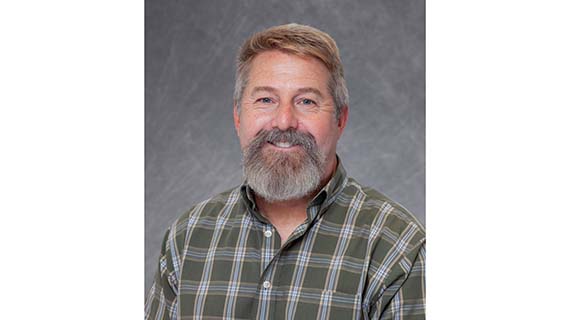SUU’s Dr. Mark Miller Makes Headlines with New Publications
Published: October 13, 2020 | Author: Savannah Byers | Read Time: 3 minutes
 Dr. Mark Miller, professor of history at Southern Utah University, has several exciting articles being published soon. Dr. Miller specializes in Native American identity and citizenship, wars of independence, and the economic history of the American West. He earned his B.A. from Texas A&M University, an M.A. from the University of Arizona, and a Ph.D. from the University of Arizona.
Dr. Mark Miller, professor of history at Southern Utah University, has several exciting articles being published soon. Dr. Miller specializes in Native American identity and citizenship, wars of independence, and the economic history of the American West. He earned his B.A. from Texas A&M University, an M.A. from the University of Arizona, and a Ph.D. from the University of Arizona.
The following articles will be published in 2021:
“Polygamy under the Red Cliffs: Women’s Voices and Historical Memory at Centennial Park”
This article will be released in the 2021 edition Utah Historical Quarterly, published by the Utah Division of State History. The article examines the practice of polygamy through the voices of women in the Centennial Park community on the Utah-Arizona border.
Dr. Miller drew information from a series of twelve interviews of Centennial Park community members and from the transcripts of two multi-hour seminars hosted by himself on campus in 2014 and 2015.
“Its aim is to give voice to women in a marginalized community: to present their history and their cultural practices as they portray them, particularly how their lives in plural marriage differ from that of women in the Fundamentalist Latter-Day Saint community,” said Dr. Miller.
“A River Again: Fossil Creek, Desert Fishes, and Dam Removal in the American Southwest”
This article will be released in the 2021 edition of the Pacific Historical Review, published by the American Historical Association. This article details the successful campaign to decommission two hydroelectric plants and a dam on Fossil Creek to preserve native fish.
“I got interested in the battle to remove several historical hydroelectric dams on Fossil Creek near Flagstaff, Arizona through my research,” said Dr. Miller. “Advocates succeeded in having the plants torn down in the early 2000s. They were the first dam and hydroelectric facilities in the nation torn down to restore native desert fish species.”
For this publication, Dr. Miller conducted archival research at Northern Arizona University, the University of Nevada Las Vegas, and Arizona State University, as well as field research at Fossil Creek and the Virgin River.
“‘One Territory, Many Peoples:’ Racial and Ethnic Groups and the Development of
Arizona Territory”
This article will be released in the 2021 edition of The Smoke Signal, published by the Tucson Corral of the Westerners. The article focuses on the historical contributions minoritized groups have made to Arizona.
“I worked to show that many minority groups played significant roles in the economic development of the Arizona territory from 1848 to statehood in 1912,” said Dr. Miller. “I also illuminated the fact that they fought diligently to preserve the cultures and their place in the socio-economic order of Arizona.”
The large Hispanic and Indigenous populations of Arizona had a large influence in multiple industries and workforces during the time until Anglo-Americans took over the socio-economic power. This article elevates the authentic history of these two minoritized groups.
“I think my work on plural marriage and environmental history shows that history is never dead,” said Dr. Miller. “It reveals that in current debates history is quite important. What happened in the past still informs the present. Since both of these topics are quite controversial today, I think historians provide a valuable service by exposing the history behind debates over allowing polygamy in modern America or whether we should make trade off through development and water use to preserve unique species. Knowledge of people who practice plural marriage and their religious history as well as the history of preservation efforts toward endangered species is vital to all participants in the debates.”
Dr. Miller began teaching at SUU in 2006. In 2012 he became a professor of history and the chair for SUU's History, Sociology, & Anthropology Department.
Tags: History
Contact Information
435-586-5400
Contact the Office of Marketing Communication
This article was published more than 3 years ago and might contain outdated information or broken links. As a result, its accuracy cannot be guaranteed.

